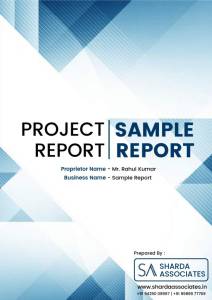Project Report For Vermicompost
Introduction
The project report for Vermicompost is as follows.
The breakdown of organic material (of plant and/or animal origin) by earthworms is essential. Profits may be made through commercial manufacturing of vermicompost, which is becoming increasingly popular. Excellent quality compost may be generated in a short amount of time under ambient temperature settings by using the right type of earthworms. When compared to compost pits without earthworms, earthworms enhance quicker breakdown of organic material. Vermicompost contributes significantly to the development and productivity of many field crops such as vegetable, floral, and fruit crops. It has been discovered that applying vermicompost in most crops increases germination percentage and product quality. Vermicompost, in addition to providing nutrients and growth hormones to plants, improves soil structure, resulting in increased water and nutrient holding capacity.
The main benefit of vermicompost is that it may be utilised for all crops, including agricultural, horticultural, ornamental, and vegetable crops, at any stage of development. Individuals and fertiliser businesses are ramping up commercial production of vermicompost due to the minimal cost and great profits. In India, it costs around 4 to 5 rupees to manufacture 1 kilogramme of vermicompost, which may be sold in the open market for 10 to 12 rupees per kg.
Vermicompost is the result of a decomposition process in which several species of worms, often red wigglers, white worms, and other earthworms, decompose vegetable or food waste, bedding materials, and vermicast. Vermicast is the byproduct of earthworms breaking down organic materials. Vermicomposting is a kind of composting in which particular earthworm species are employed to improve the organic waste conversion process and generate a better final product.
Market Potential Of Vermicompost
The Global Vermicompost Market was worth USD 64.55 million in 2019 and is expected to be worth USD 223.42 million by 2027, expanding at a CAGR of 15.74 per cent from 2020 to 2027. The worldwide vermicompost market is growing due to a variety of causes, including improved soil aeration, increased water holding capacity, improved nutrient cycle, and enriched soil with microorganisms, which aid in plant root growth and structure, as well as enhanced germination. Organic farming uses the vermicomposting process. Increasing the adoption of sustainable agricultural techniques, such as vermicomposting, as well as government support for organic farming, will substantially contribute to the growth of the worldwide vermicompost market throughout the forecast periodVermicompost provides plants with essential nutrients and aids in the control of plant diseases. Worm castings frequently include 7 times more phosphorus, 11 times more potassium, and 5 times more nitrogen than regular soil, all of which are essential elements for plant development.
The worldwide vermicompost market is primarily driven by rising demand for vermicompost from various sectors for a number of applications including home gardening, landscaping, golf courses, farming, landscaping, compost tea production, and selling. The growing demand for vermicompost from private laboratories, colleges, and high schools for research and teaching purposes is also fueling the global expansion of this market. Furthermore, rising demand for organic goods, as well as increased awareness about the dangers of conventional fertilisers and pesticides, are projected to drive market expansion. Vermicomposting has grown in favour in both industrial and residential settings because, as compared to traditional composting, it allows for the faster treatment of organic wastes. The vermicompost business has a bright future, with potential in agriculture, home gardening, landscaping, and horticulture.
Project Report Sample On Vermicompost
Need Help?
Create 100% Bankable Project Report

